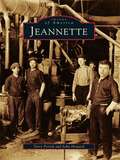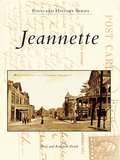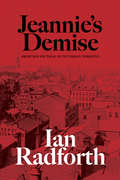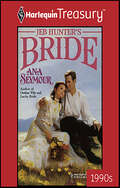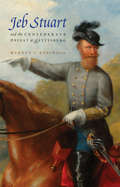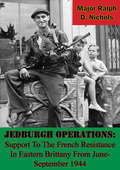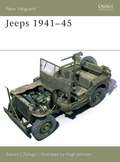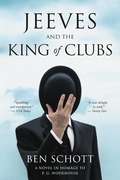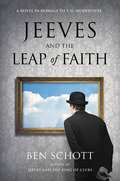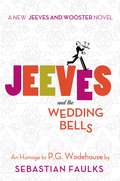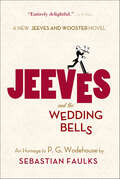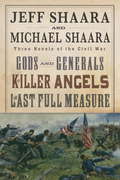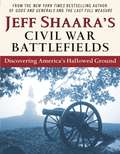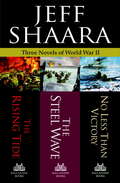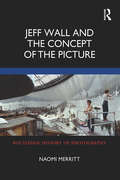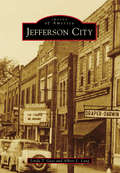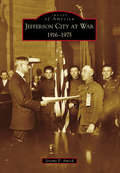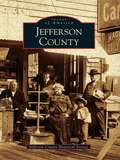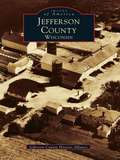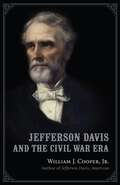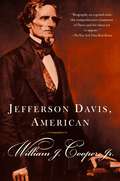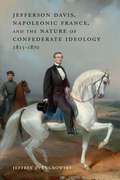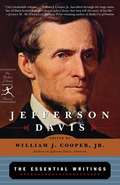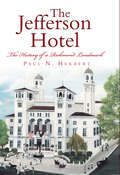- Table View
- List View
Jeannette
by John Howard Terry PerichJeannette, the Glass City, was named in honor of H. Sellers McKee's wife and was the first large manufacturing town within Westmoreland County. On May 20, 1889, the first glass was blown, and Jeannette began sending its glass products all over the world. There were seven great glass factories located in the area, as well as the largest pressed-glass factory in America and the largest window glass plant in the world. Two of the largest factories in the world were the McKee Brothers' Works and the Chambers-McKee Glass Company. Jeannette produced more glass in various forms than any other place in the United States. Jeannette was also home to Oakford Park, a trolley park, for the relaxation of its citizens and those in the surrounding areas. The great Oakford Park flood, which took place on July 5, 1903, was the most devastating event in western Pennsylvania since the Johnstown flood of 1889. Oakford Park was rebuilt, and Jeannette recovered and continued producing glass.
Jeannette (Postcard History Series)
by Terry Perich Kathleen PerichJeannette, the Glass City, was the first industrial city in Westmoreland County. From Jeannette's founding in 1888 by Pittsburgh industrialist H. Sellers McKee, the city was destined for fame. Jeannette produced more glass in various forms than any other city in the world. At one time there were seven great glass factories in Jeannette, all producing glass that was shipped worldwide. Jeannette was a beautiful planned Victorian town, and the residents were proud of their city. A new form of correspondence became popular: the penny postcard. Jeannette features postcards showing the area's Victorian mansions, workers' row houses, factories, schools, churches, businesses, streets, and government buildings.
Jeannie’s Demise: Abortion on Trial in Victorian Toronto
by Ian RadforthAugust 1, 1875, Toronto: The naked body of a young woman is discovered in a pine box, half-buried in a ditch along Bloor Street. So begins Jeannie’s Demise, a real-life Victorian melodrama that played out in the bustling streets and courtrooms of “Toronto the Good,” cast with all the lurid stock characters of the genre. Historian Ian Radforth brings to life an era in which abortion was illegal, criminal proceedings were a spectator sport, and coded advertisements for back-alley procedures ran in the margins of newspapers. At the centre of the story is the elusive and doomed Jeannie Gilmour, a minister’s daughter whose independent spirit can only be glimpsed through secondhand accounts and courtroom reports. As rumours swirl about her final weeks and her abortionists stand trial for their lives, a riveted public grapples with questions of guilt and justice, innocence and intent. Radforth’s intensive research grounds the tragedy of Jeannie’s demise in sharp historical analysis, presenting over a dozen case studies of similar trials in Victorian-era Canada. Part gripping procedural, part meticulous autopsy, Jeannie’s Demise opens a rare window into the hidden history of a woman’s right to choose.
Jeb Hunter's Bride
by Ana SeymourA WOMAN ALONE,yet determined to fulfill her dying father's golden dream, Kerry Gallivan heeded the siren call of pioneering and set out on "the sea of grass." But how was she to know that while she sailed her prairie schooner, Jeb Hunter would become captain of her fate?A MAN APARTWagon master for a Conestoga caravan west, Jeb Hunter held the lives of his people in his hands...and a guilty secret in his soul. Haunted by the past, he had no future-until Kerry Gallivan schemed her way onto his train, and into his heart!
Jeb Stuart and the Confederate Defeat at Gettysburg
by Warren C. Robinson&“The Army was much embarrassed by the absence of the cavalry,&” Robert E. Lee wrote of the Gettysburg campaign, stirring a controversy that continues even today. Lee&’s statement was an indirect indictment of Gen. James Ewell Brown (&“Jeb&”) Stuart, who was the cavalry. This book reexamines the questions that have shadowed the legendary Confederate hero and offers a fresh, informed interpretation of his role at Gettysburg.Avoiding the partisan pros and cons characterizing previous accounts, Warren C. Robinson reassesses the historical record to come to a clearer view of Stuart&’s orders for the crucial battle (as well as what was expected of him), of his actual performance, and of the impact his late arrival had on the outcome of the campaign. Though Stuart may not have disobeyed Lee&’s orders, Robinson argues, he did abuse the general&’s discretion by raiding Washington rather than scouting for the army at Gettysburg—a move that profoundly affected Confederate fortunes and perhaps the war itself.
Jedburgh Operations: Support To The French Resistance In Eastern Brittany From June-September 1944
by Major Ralph D. NicholsSpecially trained teams, known as Jedburghs, were inserted into France in conjunction with Operation "Overlord," to help liberate it from German occupation. The Jedburghs were three-man allied teams, comprised of two commissioned officers, (at least one French) and a non-commissioned officer in charge of the radio (wireless telegraphy). All Jedburghs were volunteers. They received highly specialized training in guerrilla warfare. Jedburghs served in harm's way, deep behind enemy lines. They were subordinate to the Supreme Headquarters Allied Expeditionary Force (SHAEF), and its commander, General Dwight D. Eisenhower. Their covert mission in Operation "Overlord" helped pave the way for the liberation of France, and ultimately resulted in a campaign to free Europe from Nazi rule.This study explores the origins, purpose, training and missions of the Jedburghs. I will examine the actual operations of seven Jedburgh teams in Eastern Brittany. Their actions and effectiveness will be compared with operations of other Jedburgh teams.
Jeeps 1941-45
by Hugh Johnson Steven ZalogaThe jeep was the most famous military vehicle of World War II, and its name has become synonymous with a whole class of military and civilian all-terrain vehicles. The jeep originated in a prewar US Army requirement for a simple, inexpensive, and robust vehicle for basic utility chores. Its simple design proved to be adaptable to a host of military tasks including use as a scout vehicle, battlefield ambulance, communications vehicle, and staff car. This book, covering "the savior of World War II", focuses on the design and development of this versatile vehicle used on nearly every front of World War II. From the Trade Paperback edition.
Jeeves and the King of Clubs: A Novel in Homage to P.G. Wodehouse
by Ben SchottWhat ho! A new Jeeves and Wooster novel, penned in homage to P.G. Wodehouse by bestselling author Ben Schott--in which literature's favorite gentleman and his gentleman's personal gentleman become spies in service to the Crown.The misadventures of P.G. Wodehouse's Bertie Wooster and his incomparable valet, Jeeves, have delighted audiences for nearly a century. Now, bestselling author Ben Schott brings this odd couple back to life in a madcap new adventure that is full of the hijinks, entanglements, imbroglios, and Wodehousian wordplay that readers love. And, by Jove, there's a hook!In this escapade, the Junior Ganymede Club (Jeeves's association of butlers and valets) is revealed to be an arm of the British intelligence service. Jeeves must ferret out a Fascist spy, and only his hapless employer can help. Unfolding in the background are school-chum capers, affairs of the heart, drawing-room escapades, antics with aunts, and sartorial set-tos. Energized by Schott's effervescent prose, Jeeves and the King of Clubs delights longtime fans and introduces a new audience to the comic joys of these beloved characters.
Jeeves and the Leap of Faith: A Novel in Homage to P. G. Wodehouse
by Ben SchottJeeves and Wooster return in a new espionage caper full of japes, high jinks, and jiggery-pokery in a series that is &“impossible to read without grinning idiotically&” (Evening Standard). The Drones club&’s in peril. Gussie&’s in love. Spode&’s on the war path. Oh, and His Majesty&’s Government needs a favor . . . I say! It&’s a good thing Bertie&’s back, what? In his eagerly anticipated sequel to Jeeves and the King of Clubs, Ben Schott leads Jeeves and Wooster on another elegantly uproarious escapade. From the mean streets of Mayfair to the scheming spires of Cambridge, we encounter a joyous cast of characters: chiseling painters and criminal bookies, eccentric philosophers and dodgy clairvoyants, appalling poets and pocket dictators, vexatious aunts and their vicious hounds. But that&’s not all: Who is ICEBERG, and why is he covered in chalk? Why is Jeeves reading Winnie-the-Pooh? What is seven across and eighty-five down? How do you play Russian Roulette at The Savoy? These questions, and more, are answered in Jeeves and the Leap of Faith — an homage to P.G. Wodehouse, authorized by his estate, and essential reading for fans of The Master. Tinkety-tonk!
Jeeves and the Wedding Bells, an Homage to P.G. Wodehouse
by Sebastian FaulksBertie Wooster (a young man about town) and his butler Jeeves (the very model of the modern manservant)--return in their first new novel in nearly forty years: Jeeves and the Wedding Bells by Sebastian Faulks. P.G. Wodehouse documented the lives of the inimitable Jeeves and Wooster for nearly sixty years, from their first appearance in 1915 ("Extricating Young Gussie") to his final completed novel (Aunts Aren't Gentlemen) in 1974. These two were the finest creations of a novelist widely proclaimed to be the finest comic English writer by critics and fans alike. Now, forty years later, Bertie and Jeeves return in a hilarious affair of mix-ups and mishaps. With the approval of the Wodehouse estate, acclaimed novelist Sebastian Faulks brings these two back to life for their legion of fans. Bertie, nursing a bit of heartbreak over the recent engagement of one Georgina Meadowes to someone not named Wooster, agrees to "help" his old friend Peregrine "Woody" Beeching, whose own romance is foundering. That this means an outing to Dorset, away from an impending visit from Aunt Agatha, is merely an extra benefit. Almost immediately, things go awry and the simple plan quickly becomes complicated. Jeeves ends up impersonating one Lord Etringham, while Bertie pretends to be Jeeves' manservant "Wilberforce,"--and this all happens under the same roof as the now affianced Ms. Meadowes. From there the plot becomes even more hilarious and convoluted, in a brilliantly conceived, seamlessly written comic work worthy of the master himself. A Kirkus Reviews Best Fiction Book of 2013
Jeeves and the Wedding Bells: An Homage To P. G. Wodehouse (Jeeves and Wooster)
by Sebastian FaulksBertie Wooster (a young man about town) and his butler Jeeves (the very model of the modern manservant)—return in their first new novel in nearly forty years: Jeeves and the Wedding Bells by Sebastian Faulks. P.G. Wodehouse documented the lives of the inimitable Jeeves and Wooster for nearly sixty years, from their first appearance in 1915 ("Extricating Young Gussie") to his final completed novel (Aunts Aren't Gentlemen) in 1974. These two were the finest creations of a novelist widely proclaimed to be the finest comic English writer by critics and fans alike. Now, forty years later, Bertie and Jeeves return in a hilarious affair of mix-ups and mishaps. With the approval of the Wodehouse estate, acclaimed novelist Sebastian Faulks brings these two back to life for their legion of fans. Bertie, nursing a bit of heartbreak over the recent engagement of one Georgina Meadowes to someone not named Wooster, agrees to "help" his old friend Peregrine "Woody" Beeching, whose own romance is foundering. That this means an outing to Dorset, away from an impending visit from Aunt Agatha, is merely an extra benefit. Almost immediately, things go awry and the simple plan quickly becomes complicated. Jeeves ends up impersonating one Lord Etringham, while Bertie pretends to be Jeeves' manservant "Wilberforce,"—and this all happens under the same roof as the now affianced Ms. Meadowes. From there the plot becomes even more hilarious and convoluted, in a brilliantly conceived, seamlessly written comic work worthy of the master himself.A Kirkus Reviews Best Fiction Book of 2013
Jeff Shaara and Michael Shaara: Three Novels of the Civil War
by Jeff Shaara Michael ShaaraMichael Shaara reinvented the war novel with his Pulitzer Prize-winning masterpiece of Gettysburg, The Killer Angels. Jeff Shaara propelled his father's legacy to new heights with a series of centuries-spanning New York Times bestsellers. Together at last in eBook form, this volume assembles three Civil War novels from America's first family of military fiction: Gods and Generals, The Killer Angels, and The Last Full Measure. Gods and Generals traces the lives, passions, and careers of the great military leaders--Thomas "Stonewall" Jackson, Winfield Scott Hancock, Joshua Chamberlain--from the gathering clouds of war. The Killer Angels re-creates the fight for America's destiny in the Battle of Gettysburg, the four most bloody and courageous days of our nation's history. And The Last Full Measure brings to life the final two years of the Civil War, chasing the escalating conflict between Robert E. Lee and Ulysses S. Grant--complicated, heroic, and deeply troubled men--through to its riveting conclusion at Appomattox. Contains a preview Jeff Shaara's highly anticipated new novel of the Civil War, A Blaze of Glory.
Jeff Shaara's Civil War Battlefields: Discovering America's Hallowed Ground
by Jeff ShaaraTRAVEL THROUGH A PIVOTAL TIME IN AMERICAN HISTORY. Jeff Shaara, America's premier Civil War novelist, gives a remarkable guided tour of the ten Civil War battlefields every American should visit: Shiloh, Antietam, Fredericksburg/Chancellorsville, Gettysburg, Vicksburg, New Market, Chickamauga, the Wilderness/Spotsylvania, Cold Harbor, and Petersburg/Appomattox. Shaara explores the history, the people, and the places that capture the true meaning and magnitude of the conflict and provides* engaging narratives of the war's crucial battles* intriguing historical footnotes about each site* photographs of the locations-then and now* detailed maps of the battle scenes* fascinating sidebars with related points of interest. From Antietam to Gettysburg to Vicksburg, and to the many poignant destinations in between, Jeff Shaara's Civil War Battlefields is the ideal guide for casual tourists and Civil War enthusiasts alike. From the Trade Paperback edition.
Jeff Shaara: Three Novels of World War II
by Jeff ShaaraJeff Shaara has written vivid, perceptive portraits of America's wars that have thrilled and mesmerized readers across generations. Collected for the first time in this eBook volume are Jeff Shaara's epic New York Times bestselling novels of World War II: The Rising Tide, The Steel Wave, and No Less Than Victory. As the United States wades into the shifting tides of war, Shaara details every move--the tank battles along the Mediterranean coast, the audacious invasion at Omaha Beach, the deadly final spasms of the Third Reich. He brings to life such figures as Eisenhower and Patton, as well as the courageous men on the front lines of battle. On full display throughout is the inimitable style and striking narrative range that have made Jeff Shaara such an esteemed and essential chronicler of the American age. Contains an excerpt from Jeff Shaara's acclaimed new novel of World War II in the Pacific, The Final Storm, which Booklist called "extraordinarily evocative."
Jeff Wall and the Concept of the Picture (Routledge History of Photography)
by Naomi MerrittThis book grapples with fundamental questions about the evolving nature of pictorial representation, and the role photography has played in this ongoing process. These issues are explored through a close analysis of key themes that underpin the photography practice of Canadian artist Jeff Wall and through examining important works that have defined his oeuvre. Wall’s strategic revival of ‘the picture’ has had a resounding influence on the development of contemporary art photography, by expanding the conceptual and technical frameworks of the medium and introducing a self-reflexive criticality. Naomi Merritt brings a new and original contribution to the scholarship on one of the most significant figures to have shaped the course of contemporary art photography since the 1970s and shines a light on the multilayered connections between photography and art. This book will be of interest to scholars in the history of photography, art and visual culture, and contemporary art history.
Jefferson City (Images of America)
by Albert L. Lang Linda T. GassIn 1788, Adam and Elizabeth Peck followed the Holston River from Virginia into east Tennessee and settled in what would become Mossy Creek. Utilizing the waterway, the Pecks' gristmill thrived within a growing community. The outbreak of the Civil War brought the Battle of Mossy Creek on December 29, 1863. During the next century, zinc mining, the establishment of Mossy Creek Missionary Baptist Seminary (now Carson-Newman University), and the town's inclusion as a stop on the new railroad ushered a steady flow of people to this picturesque region of promise. In 1901, Mossy Creek joined the Carsonville and Frame Addition communities to be incorporated as Jefferson City. The Tennessee Valley Authority began work in 1940 on nearby Cherokee Dam, generating both jobs and tourism.
Jefferson City at War: 1916-1975 (Images of America)
by Jeremy P. AmickJefferson City has a unique and enduring legacy of brave individuals banding together to answer the nation's call to arms. The Missouri National Guard's Company L, 2nd Infantry mobilized in support of the Mexican Border War in 1916 and later federalized for deployment during the Great War. Local youth scrambled to recruiting stations for a chance to join in the fray against Germany and Japan during World War II. Later, brave residents found themselves in the Korea peninsula or the jungles of Vietnam. It is clear that the Jefferson City community has a history of embracing the groundswell of patriotic pride that emerges in support of those who chose to fight--and sometimes lay down their lives--for a cause they view as greater than themselves.
Jefferson County
by Jefferson County Historical SocietyFounded by optimistic speculators with dreams of commercial empires that never materialized, Jefferson County is located on Washington's Olympic Peninsula. It stretches from spectacular Pacific Ocean beaches on the west and the Strait of Juan de Fuca on the north to the forested banks of the Hood Canal on the east. Created by the Oregon territorial legislature in 1852 and redefined by the Washington Territorial Legislature in 1877, it was named for Pres. Thomas Jefferson. Scenic Olympic National Park and Olympic National Forest occupy 60 percent of the county, and important industries in the region have included logging, pulp and paper, fishing, dairy farming, boatbuilding, and other marine-related businesses. Today the county has been discovered by artists, writers, poets, retirees, and tourists drawn to its unmatched scenery, mild weather, outstanding recreational opportunities, and the absence of urban stress.
Jefferson County, Wisconsin (Images of America)
by Jefferson County Historic AllianceJefferson County holds a unique place in the history of the state of Wisconsin. Founded in 1836 by Yankee settlers from New England, it began as an agriculturally-based county but soon rose to prominence as the cradle of the dairy industry. Nestled in the valley of the Rock River in southeastern Wisconsin, Jefferson County has always figured prominently in the history of the state due to its proximity to both Milwaukee, Wisconsin's largest city, and Madison, the state capital. Jefferson County, Wisconsin looks at the history of this area from 1836 to the present day. The historic images and informative text allow the reader to view changes in industry, gain greater insight into the history of education, and better understand the historic roles that religion and the ever-important rivers have played in defining Jefferson County. By the beginning of the twentieth century, and for many years after, Jefferson County was the leader in the dairy industry. Education also played an important role in the makeup of the county's character. Such important educational milestones as the first kindergarten in America, founded in Watertown in 1856, and the first free textbooks in the state bearwitness to the county's commitment to the educational betterment of its children. Since the 1960s, much has changed in Jefferson County, and this book will serve as a permanent record of itswonderful history, which is sometimes too easily forgotten.
Jefferson Davis and the Civil War Era
by William J. Jr.In his masterpiece, Jefferson Davis, American, William J. Cooper, Jr., crafted a sweeping, definitive biography and established himself as the foremost scholar on the intriguing Confederate president. Cooper narrows his focus considerably in Jefferson Davis and the Civil War Era, training his expert eye specifically on Davis's participation in and influence on events central to the American Civil War. Nine self-contained essays address how Davis reacted to and dealt with a variety of issues that were key to the coming of the war, the war itself, or in memorializing the war, sharply illuminating Davis's role during those turbulent years.Cooper opens with an analysis of Davis as an antebellum politician, challenging the standard view of Davis as either a dogmatic priest of principle or an inept bureaucrat. Next, he looks closely at Davis's complex association with secession, which included, surprisingly, a profound devotion to the Union. Six studies explore Davis and the Confederate experience, with topics including states' rights, the politics of command and strategic decisions, Davis in the role of war leader, the war in the West, and the meaning of the war. The final essay compares and contrasts Davis's first inauguration in Montgomery, Alabama, in 1861 with a little-known dedication of a monument to Confederate soldiers in the same city twenty-five years later. In 1886, Davis -- an old man of seventy-eight and in poor health -- had himself become a living monument, Cooper explains, and was an essential element in the formation of the Lost Cause ideology.Cooper's succinct interpretations provide straightforward, compact, and deceptively deep new approaches to understanding Davis during the most critical time in his life. Certain to stimulate further thought and spark debate, Jefferson Davis and the Civil War Era offers rare insight into one of American history's most complicated and provocative figures.
Jefferson Davis, American (Vintage Civil War Library)
by William J. CooperFrom a distinguished historian of the America South comes this thoroughly human portrait of the complex man at the center of our nation's most epic struggle.Jefferson Davis initially did not wish to leave the Union-as the son of a veteran of the American Revolution and as a soldier and senator, he considered himself a patriot. William J. Cooper shows us how Davis' initial reluctance turned into absolute commitment to the Confederacy. He provides a thorough account of Davis' life, both as the Confederate President and in the years before and after the war. Elegantly written and impeccably researched, Jefferson Davis, American is the definitive examination of one of the most enigmatic figures in our nation's history.From the Trade Paperback edition.
Jefferson Davis, Napoleonic France, and the Nature of Confederate Ideology, 1815-1870
by Jeffrey ZvengrowskiIn this highly original study of Confederate ideology and politics, Jeffrey Zvengrowski suggests that Confederate president Jefferson Davis and his supporters saw Bonapartist France as a model for the Confederate States of America. They viewed themselves as struggling not so much for the preservation of slavery but for antebellum Democratic ideals of equality and white supremacy. The faction dominated the Confederate government and deemed Republicans a coalition controlled by pro-British abolitionists championing inequality among whites. Like Napoleon I and Napoleon III, pro-Davis Confederates desired to build an industrial nation-state capable of waging Napoleonic-style warfare with large conscripted armies. States’ rights, they believed, should not preclude the national government from exercising power. Anglophile anti-Davis Confederates, in contrast, advocated inequality among whites, favored radical states’ rights, and supported slavery-in-the-abstract theories that were dismissive of white supremacy. Having opposed pro-Davis Democrats before the war, they preferred decentralized guerrilla warfare to Napoleonic campaigns and hoped for support from Britain. The Confederacy, they avowed, would willingly become a de facto British agricultural colony upon achieving independence. Pro-Davis Confederates, wanted the Confederacy to become an ally of France and protector of sympathetic northern states. Zvengrowski traces the origins of the pro-Davis Confederate ideology to Jeffersonian Democrats and their faction of War Hawks, who lost power on the national level in the 1820s but regained it during Davis' term as secretary of war. Davis used this position to cultivate friendly relations with France and later warned northerners that the South would secede if Republicans captured the White House. When Lincoln won the 1860 election, Davis endorsed secession. The ideological heirs of the pro-British faction soon came to loathe Davis for antagonizing Britain and for offering to accept gradual emancipation in exchange for direct assistance from French soldiers in Mexico. Zvengrowski’s important new interpretation of Confederate ideology situates the Civil War in a global context of imperial competition. It also shows how anti-Davis ex-Confederates came to dominate the postwar South and obscure the true nature of Confederate ideology. Furthermore, it updates the biographies of familiar characters: John C. Calhoun, who befriended Bonapartist officers; Davis, who was as much a Francophile as his namesake, Thomas Jefferson; and Robert E. Lee, who as West Point’s superintendent mentored a grand-nephew of Napoleon I.
Jefferson Davis: The Essential Writings
by Jefferson Davis William J. CooperJefferson Davis is one of the most complex and controversial figures in American political history (and the man whom Oscar Wilde wanted to meet more than anyone when he made his tour of the United States). Elected president of the Confederacy and later accused of participating in the assassination of Abraham Lincoln, he is a source of ongoing dissension between northerners and southerners. This volume, the first of its kind, is a selected collection of his writings culled in large part from the authoritative Papers of Jefferson Davis, a multivolume edition of his letters and speeches published by the Louisiana State University Press, and includes thirteen documents from manuscript collections and one privately held document that have never before appeared in a modern scholarly edition. From letters as a college student to his sister, to major speeches on the Constitution, slavery, and sectional issues, to his farewell to the U.S. Senate, to his inaugural address as Confederate president, to letters from prison to his wife, these selected pieces present the many faces of the enigmatic Jefferson Davis.As William J. Cooper, Jr., writes in his Introduction, "Davis's notability does not come solely from his crucial role in the Civil War. Born on the Kentucky frontier in the first decade of the nineteenth century, he witnessed and participated in the epochal transformation of the United States from a fledgling country to a strong nation spanning the continent. In his earliest years his father moved farther south and west to Mississippi. As a young army officer just out of West Point, he served on the northwestern and southwestern frontiers in an army whose chief mission was to protect settlers surging westward. Then, in 1846 and 1847, as colonel of the First Mississippi Regiment, he fought in the Mexican War, which resulted in 1848 in the Mexican Cession, a massive addition to the United States of some 500,000 square miles, including California and the modern Southwest. As secretary of war and U.S. senator in the 1850s, he advocated government support for the building of a transcontinental railroad that he believed essential to bind the nation from ocean to ocean."From the Hardcover edition.
Jefferson Hotel, The: The History of a Richmond Landmark
by Paul N. HerbertDesigned by Richmond visionary Lewis Ginter, The Jefferson Hotel has been an icon in the community since 1895. From the alligators that used to roam the elegant lobby to the speakeasy housed within during Prohibition, the hotel has a fascinating and unparalleled history. Playing host to cultural icons like Charles Lindbergh and F. Scott Fitzgerald and surviving the Great Depression and catastrophic fires, the hotel has remained an important landmark throughout Richmond's history. Join local historian Paul Herbert as he recounts stories of heiresses, actors, musicians and celebrities in this all-encompassing history of The Jefferson, a volume bound to delight anyone who has ever stayed within its treasured walls.

